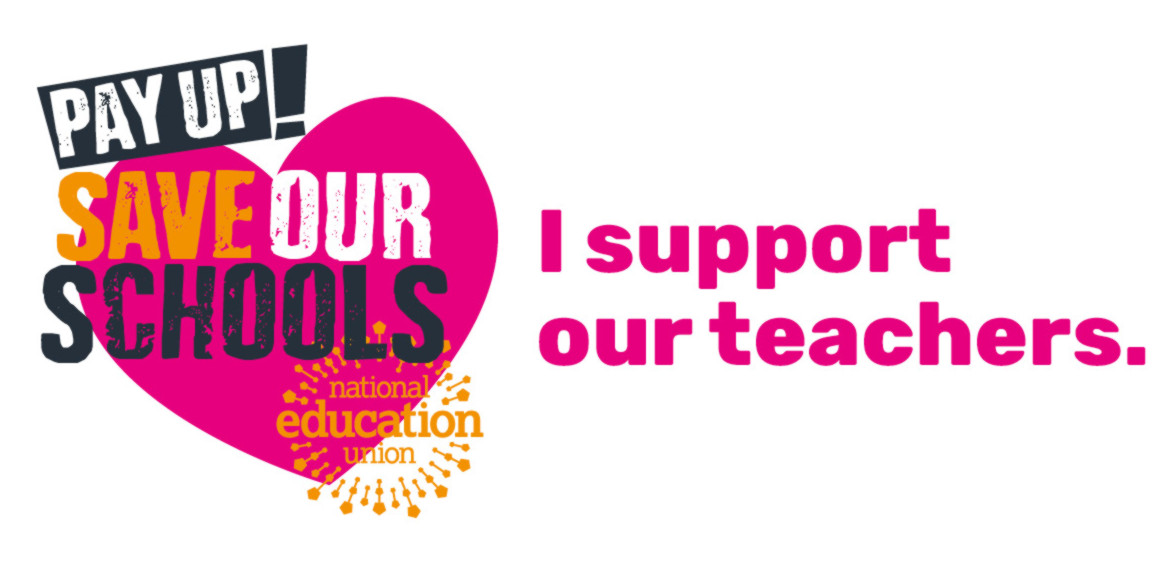The National Education Union (NEU), composed of both teachers and support staff (teaching assistants and administrative staff), is five months into a dispute with the government over pay and funding. During this period over half of schools have been closed or partially closed.
However in late 2022, Unite, GMB and UNISON (referred as the ‘three unions’ in this article), submitted a complaint to the Trades Union Congress (TUC) against the National Education Union’s ‘organising activity and recruitment of support staff workers’ in schools. This centred around the balloting of its 57,000 support staff members in response to proposed real terms pay cuts during a cost of living crisis.
The education sector has been carved up by the big unions, each claiming part of it as their organising patch. The TUC was set up to create these deals, and impose sanctions of unions that break them, even if they aren’t actively fighting for their members there. Therefore, the TUC upheld the complaint which resulted in a staggering £153,952 fine for the NEU to be paid to the three unions during a period of industrial action. This is money that could be spent on organising workplaces, supplying picket lines with materials and sustaining strike action. The actions of the three unions and TUC are a clear illustration of the differing interests of those employed by trade unions (referred to as the bureaucracy) and school workers, i.e. the ‘rank & file’.
The NEU formed through the merger of a teachers and support staff union. It agreed with the other three unions to ‘welcome’ support staff but not actively recruit them. This position has become increasingly untenable. As the NEU has waged a coordinated battle for higher pay in schools, support staff have flocked to join in their thousands. This, coupled with attacks on support staff working conditions intensifying, has significantly increased their member and rep density amongst support staff.
Why organise support staff
Currently most support staff are non-unionised and without a workplace rep. This places significant barriers to closing entire workplaces during strikes, our greatest leverage in advancing our demands. During the NEU strike days, teaching assistants have been used to support whole classes in school.
By not organising support staff we miss other key opportunities too. Striking support staff in maintenance would create ‘choke points’ in the workplace, i.e. those responsible for safely opening and closing the school. Cleaning work in schools, as in many other places, is deeply gendered, racialised and often outsourced. By organising with cleaners, we could join the fight against outsourcing.
The ability for workers to see themselves as agents of change within the education system rather than atomised individuals hinges on our ability to organise all workers
Support staff real terms pay has decreased by 27 per cent since 2010, resulting in a recruitment and retention crisis that is mirrored in teaching. Furthermore the government’s unfunded teachers pay offer risks support staff redundancies. Support staff organising is more important than ever.
The ability for workers to see themselves as agents of change within the education system rather than atomised individuals hinges on our ability to organise all workers. It is not for trade union bureaucrats to hinder organising efforts based on an obstructive and sectarian position on national collective bargaining rights.
Our rank and file response to attacks from the government who represent the interests of the capitalist class must be organisational unity. Workers must join the most organised school trade union group – one with reps, workplace meetings and the capacity to take strike action. Whilst the NEU has not ‘actively’ recruited support staff, it’s been a reflection of the union’s organisational strength that support staff have joined them.
The three unions did not meet the anti-trade union thresholds in the latest strike ballots, so none of their support staff members could legally strike. UNISON and GMB demonstrated a lack of confidence in their members and chronic lack of workplace organisation by not recommending a reject vote on the government’s inadequate pay offer. Unsurprisingly their members voted to accept a real term pay cut as a result.

Teachers in Northern Ireland strike for better pay
CREDIT: NATIONAL EDUCATION UNION
The NEU asked their support staff members, mostly working in places where there is no other union present, if they want to strike. Overwhelmingly, they voted yes. This group of largely unorganised staff therefore chose to join the NEU as the only union to have beaten the anti-trade union laws.
Unfortunately the response from the trade union bureaucracy sought division between education workers. Fining the NEU and arguing that support staff organising remains the divine right of the three unions whilst maintaining a servicing model (where workers in the absence of workplace reps are represented by paid officers or those on full time facilities time) is not a long term strategy to build trade union power. The three unions have consistently blocked attempts for the NEU to hold national collective bargaining rights despite having 57,000 support staff members. This effectively disenfranchises those workers and counterproductively weakens their bargaining position with the government.
Finally the advice from the three unions did not remind support staff workers their right as individuals to not cross a picket line – undermining the ability to close entire workplaces and tackle the recruitment, retention and cost of living crisis.
The strongest aspect of the ‘strike wave’ has been rank and file independence and solidarity. Workers setting up reps networks, campaigning to reject poor pay deals, joining each other’s picket lines and rallies, strike fundraisers, rank and file organising conferences and pressure to coordinate strike dates. These are examples of rank and file workers acting independently of the trade union bureaucracy with or without its support. Our position should take inspiration from the Clyde Workers Committee from over a hundred years ago where ‘we will support the officials just so long as they rightly represent the workers, but we will act independently, immediately, if they misrepresent them.’
Subordinating the trade union bureaucracy
Struggles against the government on the state of the education system and wider public services are not going away. Capitalism has no answer to its own contradictions on a dying planet. Increasing wealth extraction, flat lining growth, imperialist tensions, rising food prices means annual attritional battles. Simply, either we pay for the crisis or the capitalist class.
We must reject any division between teachers and support staff
The current ‘strike wave’ on pay cannot be viewed solely through the prism of economism – they also represent nascent political demands on the purpose of education system and balance of class forces. Therefore teachers and support staff will continue to organise together in schools – regardless of any judgement of the TUC. The radicalisation of regular rounds of struggle and institutional memory passed on from workplace organisation will have a two fold effect – build the confidence of rank and file workers and widen lines of demarcation between the interests of rank & file workers and the bureaucracy.
Considering the attacks on our class, accepting whole layers of workers remaining unorganised is not an option. The TUC judgement is a reflection of the organisational weakness of rank and file workers across the education unions. In order to challenge and subordinate the bureaucracy we must demand that the three unions: i) immediately recognise the NEU’s collective bargaining rights, ii) guarantee there will not be another complaint of this nature, iii) return the fine back to the NEU and iv) make serious attempts to organise support staff and wherever possible set up joint union committees.
Winning this dispute lies in the unity of rank and file workers. We must reject any division between teachers and support staff. School workers – struggle together, organise together, win together!










